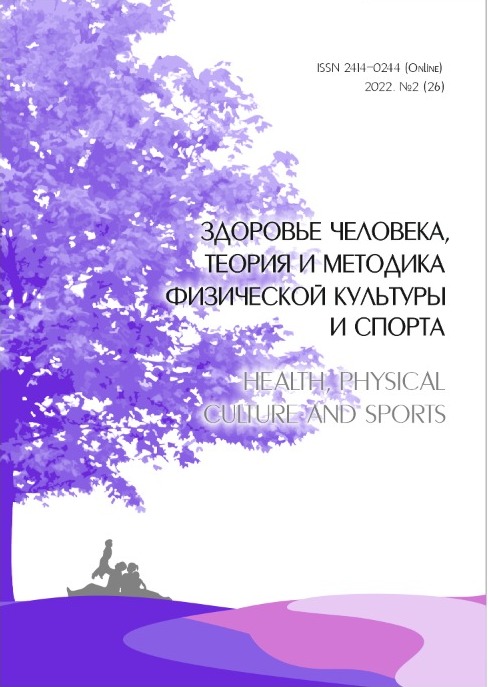CANOE EXPEDITION AS ONE OF THE WAYS TO STUDY THE ECOLOGICAL STATE OF RIVERS
Abstract
Water kayak tourism provides an opportunity to engage in scientific, historical and active tourism. This direction for extracurricular work with schoolchildren is very valuable: along with the acquired skills of driving kayaks and organizing a bivouac, environmental studies are carried out, children get acquainted with the monuments of nature and architecture of their small homeland: the Kirov region. The aim of the work was to study the ecological state of the river. Vyatka from the village of Krasnoye to the city of Orlov, Kirov Region in 2021. During the research, the following methods were used: chemical express analysis, methods for determining the microbiological and antioxidant activity of water samples, a method for mathematical processing of the results. The following settlements were along the route of the expedition: settlement Krasnoe, settlement Korchemkino (Novovyatsky district of Kirov), Kirov, village Girsovo, pos. Murygino, Goltsy village, Korzhavino village, Orlov town. During the expedition, 7 water samples from the Vyatka River were taken and analyzed: all water samples did not meet the SanPiN requirements for natural water in terms of the content of carbonates of organic pollutants; microbiological activity of MBA in the Vyatka River near the villages of Goltsy and Korzhavino, the lowest MBA is in Murygino (a paper mill is in operation); the highest antioxidant activity of AOA in the Vyatka River near Girsovo and the village of Goltsy, the lowest AOA in the village of Korzhavino. Comparison of the data of three kayaking expeditions in 2014, 2018 and 2021 allows us to conclude that the water quality in the Vyatka River has improved in Kirov near the old bridge, in Murygino and Goltsy, at other points of water sampling (Girsovo and Orlov) worsened.
Downloads
References
Bespalova S. V. Conceptual approaches to standardization in system of environmental biomonitoring // Проблемы экологии и охраны природы техногенного региона. 2013. № 1. С. 8–15.
Биологический мониторинг природно-техногенных систем территорий / под ред. Т. Я. Ашихминой, Н. М. Алалыкиной. Сыктывкар : Коми научный центр УрО РАН, 2011. 388 с.
Журавский А. Ю. Отбор в гребле на байдарках и каноэ : монография. Чебоксары : ИД «Среда», 2018. 216 с.
Колупаев Ю. Е., Ястреб Т. О. Физиологические функции неэнзиматических антиоксидантов растений // Вестник Харьковского национального аграрного университета. Серия: Биология. 2015. Т. 2 (35). С. 6–25.
Макаренко З. П. Применение проектных технологий в исследовательской деятельности лицея. Экология родного края: проблемы и пути их решения : материалы XIV Всероссийской научно-практической конференции с международным участием (г. Киров, 16–18 апреля 2019 г.). Киров : ВятГУ, 2019. 348 с. 137–141. ISBN 978–5–98228–191–3 В
О состоянии окружающей природной среды Кировской области в 2020 г.: региональный доклад / под общ. ред. А. В. Албеговой. Киров : ООО «Триада плюс», 2021. 205 с. https://www.kirovreg. ru/econom/ecology/doklad.php 17–59
Рекомендации по разработке экологического паспорта населенного пункта : учебно-методическое пособие. Mauntius. LAP LAMBERT Akademik Publishing, 2019.
Савиных Н. П., Пересторонина О. Н., Киселева Т. М., Шабалкина С. В. Особо охраняемые природные территории Кировской области: современное состояние и перспективы развития // Научные ведомости. Серия: Естественные науки. 2011. № 9 (104). Вып. 15/1. С. 10–15.
Экологический туризм в России. https://www.vpoxod.ru/page/eco_turizm// (дата обращения: 02.02.2022).
Copyright (c) 2022 Health, physical culture and sports

This work is licensed under a Creative Commons Attribution-NonCommercial 4.0 International License.
An author should not normally publish manuscripts describing essentially the same research in multiple journals or publication venues. Such redundant publication is generally considered to constitute unethical publishing behavior, and if discovered may result in a manuscript under consideration being rejected, or a published article being retracted.
Authors of manuscripts reporting on original research should present an accurate account of the work performed, accompanied by an objective discussion of its significance. Underlying data should be represented accurately in the manuscript. The manuscript should contain sufficient detail and references to permit others to replicate the work. The fabrication of results and the making of fraudulent or knowingly inaccurate statements constitute unethical behavior and may be cause for rejection or retraction of a manuscript or published article.





